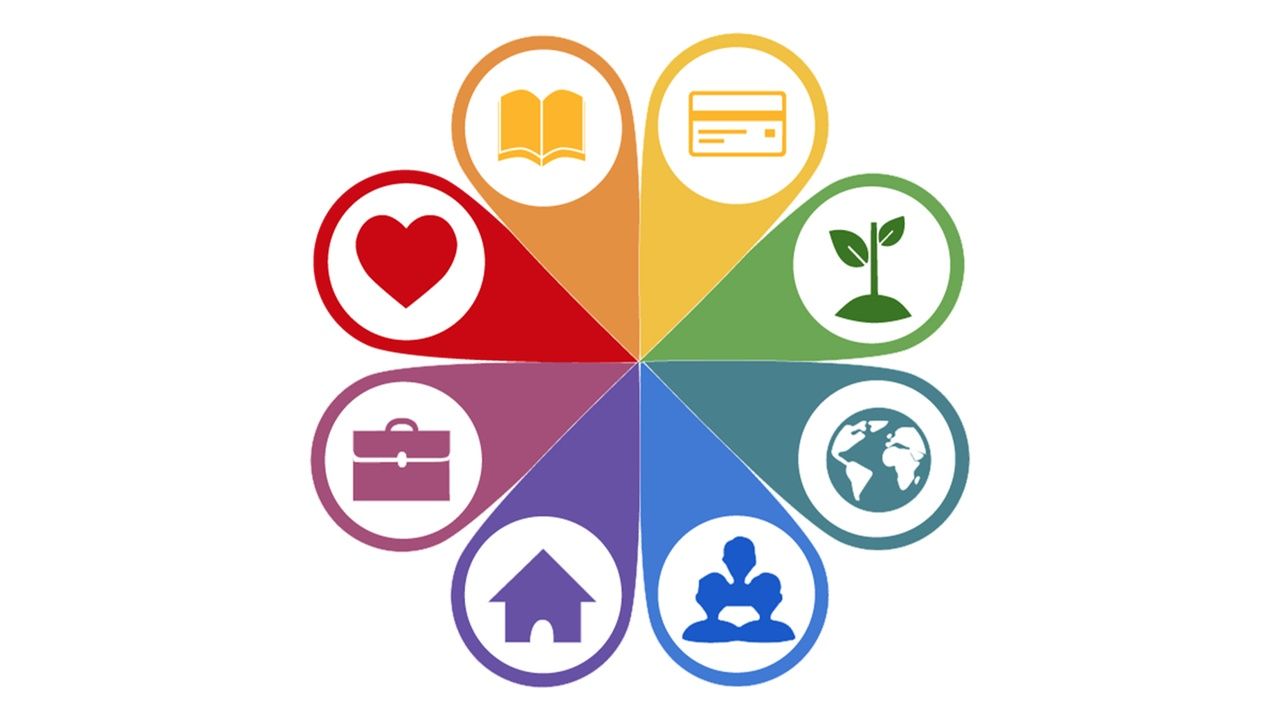Would you believe if I told you that each time you fought about money with a loved one, it’s never about the money that you are fighting about? Have you been in a situation when you had to tighten your belts, had not enough money, had to make difficult sacrifices, or even had too much money that you see people around you or even yourself being part of the fight?
Money is merely a means of exchange. Fortunately or unfortunately, this medium of exchange has become the means of accumulation and a "practical" judgment of how “successful" we are.
The rhetoric, “You are not doing enough to pull your weight for our family,” “You are spending too much, how can you control your budget better for the sake of the family?"
If only we took a pause, and realise how money is just one form of capital. Permaculture experts Ethan Roland & Gregory Landua share their wisdom with us that there are 8 forms of capital. Financial capital is just one form of the other 8. How are we building these other forms of capital? How are we contributing to building up the different forms of capital or is there an over emphasis on one or the other?

Fighting about money is no stranger to me. For everyone who has intimate and authentic relationships, the narratives we grow up around money would be so different from one another.
Let me share our story; the first real fight we had after committing to the relationship, was about money. Right from the start of the courting period, my partner would not only shower me with gifts but my colleagues as well. I had made the assumption that he came from a wealthy background. Imagine my shock when I saw his bank account balance for the first time; I almost fell off my chair!
It was the start of a long conversation and journey of balancing the basics of needs and wants for us. We had painful fights like the following: “Can't you get mineral water instead of sparkling water? What is your budget? You went over the budget! Can't you learn delayed gratification?”
The experience taught me one thing: that our history shapes the very narratives we have with money, it is not just the money per se. For my partner, he didn't have to be personally responsible for the money because his mother managed money on his behalf. I was told that my partner had never had to save; money in his piggy bank was saved by his mother. His mother would also “organize performance contracts” with him, so he would earn money for things done. However, any money earned was quickly spent. The history of how money moved and flowed in his life is evident of how money flows rather easily out of his hands.
My story was the opposite. There was a time in my history where money was scarce and I had to count every single penny and stretch it. Consequently, my natural impulse is to judge and opt for the too-critical approach of being more prudent when I saw that my partner had been extravagant.
It’s heartening to say that he’s saving so much more today after many difficult conversations of re-writing the old scripts around money, and creating new ones together, after the last 8 years of our growing, learning, being open, transparent in our money habits and embracing each other’s weaknesses together. New scripts that included how important it was for him to take responsibility for his own financial resiliency and independence. Recently, we had a conversation on our holiday about purchasing a coffee plunger. When he came back and told me that the plunger cost $160, I was almost about to jump out of my chair when the noise and judgement in my own head said, “OH NO! He has done it again.”
Here is the difference; I held back, paused to listen and seek to find out the needs that he had by wanting this coffee plunger. The experiential capital that I have learned about our shared experiences about money over the years of being in this relationship. It helps me to be mindful of my own tendency to "panic" when it comes to spending money.
Later, I found out that he had spent 5 minutes walking up and down the aisle deciding if the plunger was a need or want. Victory was ours when he suggested gently to himself, there are alternatives and we don’t have to spend $160 on a coffee plunger.
This experience taught me about myself that as we are all journeying to understand our narratives to money. Our narratives to money is characterised by how we relate, how we respond, how we perceive the role of money in our lives. We become aware that our past shapes our worldview and this in turn propels us to respond to others, whether consciously or unconsciously. The old worldview that money is scarce, and one has to save lots for the future, could have cost me another fight, that impulsive judgement of what my partner did not do.

